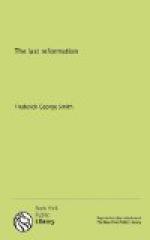[Sidenote: Basis of ministerial authority]
The foregoing scripture is a mere enumeration of the gifts that God implanted in the church as a body. The more particular application of these gifts and their relation to church organization and government are given further on in the same chapter. “Now ye are the body of Christ, and members in particular. And God hath set some in the church, first apostles, secondarily prophets, thirdly teachers, after that miracles, then gifts of healings, helps, governments, diversities of tongues. Are all apostles? are all prophets? are all teachers? are all workers of miracles? have all the gifts of healing? do all speak with tongues? do all interpret? But covet earnestly the best gifts” (verses 27-31).
Comparison of verses 4 to 11 with verses 27 to 31 of the chapter just quoted shows conclusively that one is the counterpart of the other, the latter merely amplifying and explaining the former. From this clear teaching it is evident that the work of apostleship, of teaching, of governing, etc., were all based upon and grew out of divine gifts implanted in the heart by the Holy Spirit.
The same truth is taught by Paul in another place. Speaking of Christ, the apostle says, “When he ascended up on high, he ... gave gifts unto men ... and he gave some, apostles; and some, prophets; and some, evangelists; and some, pastors and teachers; for the perfecting of the saints, for the work of the ministry, for the edifying of the body of Christ” (Eph. 4: 8-12).
According to these scriptures, the very governmental positions of the church with their authority and responsibility were the product of those gifts and qualifications bestowed upon certain individuals in particular. Such gifts could be legitimately coveted with a view to spiritual edification of the body (1 Cor. 12:31; 14:12). “If a man desire the office of a bishop, he desireth a good work” (1 Tim. 3:1). “Helps” doubtless included that class of assistants commonly called deacons (1 Tim. 3:8-11).
Since in the primitive church organization and government were determined by the divine gifts and callings possessed by individuals, it is evident that we have in this something totally different from that later conception of church government as a mere human arrangement. At a subsequent time, as we shall show, church government was patterned after the forms of political government in that it was vested inherently in men. Four such forms have been developed—the imperial, or papal; the episcopal; the presbyterial; and the congregational. While these four differ in external form, they are all alike in fundamental character, in that they assume that the governing power rests inherently in men.




